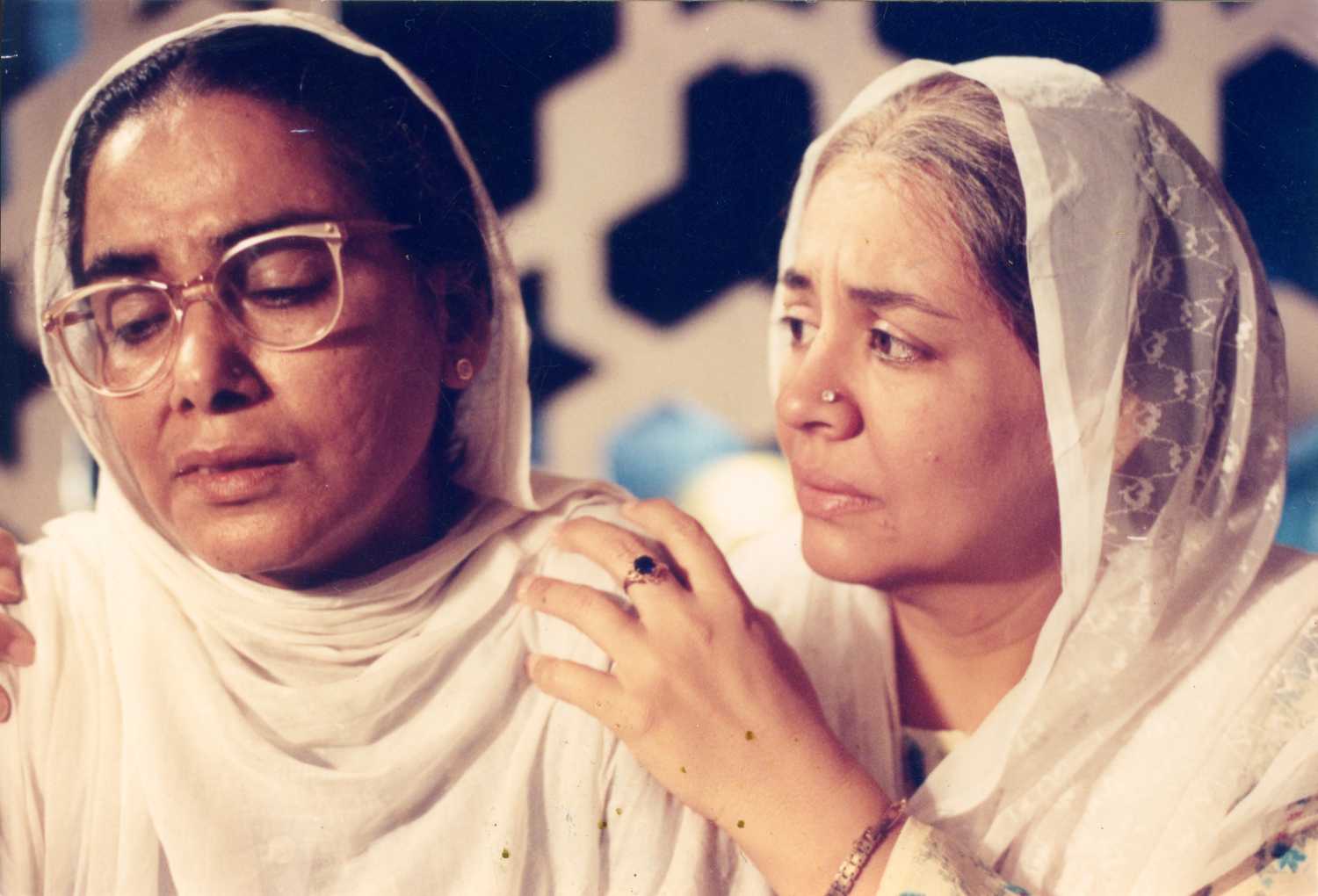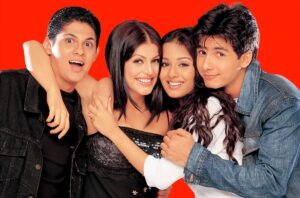
Shyam Benegal’s Mammo is a thought-provoking film to watch on Mother’s Day. The title character Mammo alias Mehmooda Begum is essayed by Farida Jalal, the epitome of motherhood in Hindi cinema. Not so unpredictably, motherly love is the projecting trait the character brings along. That aside, this quiet, affecting film is also a study on a lot of other things – a woman’s ethnic identity, the lingering effects of partition, the coming-of-age of a creative young boy brought up by his single grandparent and so on.
Mammo begins with Riyaz (Rajit Kapur), a writer, remembering his estranged maternal grandaunt, Mammo. A pile of letters belong from her to his grandmother Fayyazi (and Mammo’s sister) opens a floodgate of memories and a flashback which forms the rest of the film. Mammo (Jalal) knocks the door, perhaps after almost a decade, to Riyaz’s dismay. His privacy is suddenly threatened and his daily routine gets programmed differently. As an adolescent boy, yearning for a fatherly figure to look up to, Riyaz didn’t need another grandparent to share his life and, most importantly, space with.
With her amiable ways, Mammo quickly wins over Riyaz. She sees how the young boy is slowly evolving into a man. Unlike her conservative and controlling sister, Mammo seldom prevents Riyaz from exploring. She shares a cigarette with him. She enjoys a detective film with him. A blooming writer, Riyaz also learns about Mammo’s tragic past from the partition period. Mammo brings about a massive change in the way Riyaz lived his life. If him realizing his father’s nonchalance makes him grateful towards Mammo’s interference, her decision to invite his school friends over his birthday party irks him no end. It’s a bittersweet relationship, we may conclude. He loves her for all the warmth but is also somewhat a distant entity in his eyes. Perhaps it’s her nationality – she belongs to Pakistan and is in Mumbai with a visa – that makes him believe she is a guest, a status quo that Mammo hates. For her, Fayyazi and Riyaz form the only family that remains for her.
Progressive by soul, Benegal’s film is one that is spellbound by art and literature. Riyaz wants to be a writer and is fascinated by stories. A fan of Alfred Hitchcock, he is amazed when Mammo Nani asks him about his play, “Plot kya hai?” He even sneaks out to watch adult films clad in one of Mammo’s burqas. In a short period, he discovers how the lady possesses immense knowledge about poetry and the Qur’an. If Riyaz idolizes Khalil Ghibran, Mammo Nani quotes him back with Faiz Ahmed Faiz’s words. She introduces Riyaz to Manto, a man who churned literature on everything that he saw. In turn, Riyaz, moved by Mammo’s partition stories, takes her to relive the era. They watch Garam Hawa in the local cinema hall, an experience that leaves Mammo numb.
Mammo is also filled with metaphors galore. If Riyaz’s fish tank, at one point, is a fixture of entrapment, it later becomes an enclosure of safety. We could connect the same element to Mammo’s existence in both countries, the former is her state in Pakistan and the latter in India. The starkest visual has to be the one where Mammo, Riyaz and Fayyazi share an umbrella amid torrential Bombay rains. Clad in black and white respectively, the women could well represent either side of the border and Riyaz, is a symbol of every force that attempts to unify both. Much to our displeasure, the rain destroys the umbrella and the family reaches home all drenched.
While most of Benegal’s intuitively written film is almost flawless, I didn’t quite decipher why the filmmaker chooses to overdo Mammo’s characteristics a little. It wasn’t really essential to have a passage where she goes out of her way to bash the domestic help’s abusive husband. Ditto for a brief chapter involving certain agents who would promise visa extension to Mammo.
The finale – which comes in two episodes – is unique. The one that closes the flashback is heartbreaking whereas the other where we, the audience, is served a closure is endearing but sudden. Somehow, the latter bit in the screenplay comes across as a last-minute addition. Not that it isn’t fulfilling but it gets over before you make anything out of it.
Performances are top-notch by all artists, with Farida Jalal, Surekha Sikri and Amit Phalke excelling as the main leads. Among the supporting cast, Ameya Balsekar playing Riyaz’s best friend Rohan is pleasant. Vanraj Bhatia’s music, be it with the sole Jagjit Singh number or with the original score containing a lot of poetry (Gulzar) in the background, fits the film like a glove. Costumes by Pia Benegal and Samir Chanda’s production design add authenticity to the setup. Prasann Jain’s photography captures the unpredictability of Bombay and Mammo’s life with perfection.
One among Shyam Benegal’s Muslim trilogy films, Mammo is a personal favourite for me – primarily because of the characters and the atmosphere that appear warm, less-dressy and relatable. Somewhere in the film, the writer (Khalid Mohammed) also sprinkles a reference about his deceased mother, actress Zubeida Begum, whose story would later be captured in Benegal’s 2001 film Zubeidaa. One that narrates a beautiful story of two grandmothers who unconditionally love their only grandson, Mammo is among Shyam Benegal’s simplest and most heartfelt films.
The film can be viewed online on Youtube.

